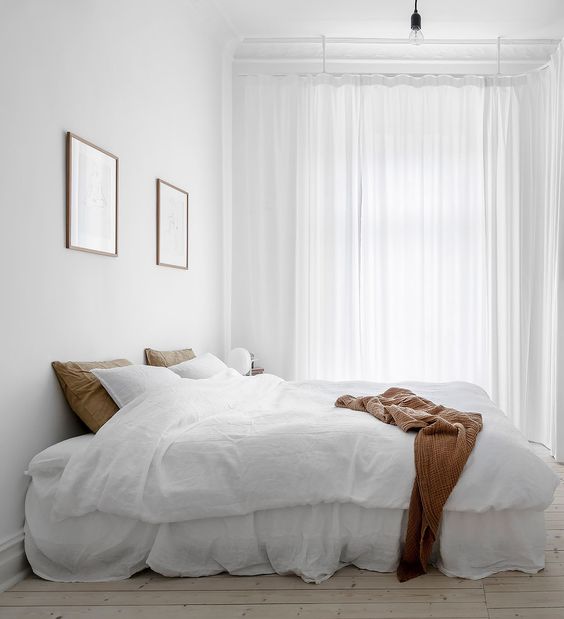Sleep Expert’s Guide to Have a Better Sleep This Winter
For better or worse, the long winter nights and cold temperatures will affect your quality and quantity of sleep. If you’re amongst the many people who often find themselves tossing and turning during those long and cold nights, you’ve come to the right place.
To help you sleep better this winter, we’ve compiled a list of some of the best tips from sleep experts. So let’s dive right in.
Choose the right sheets
First off, for a good night’s sleep, you need to make sure that your sheets can keep your bed warm throughout the cold season. When it comes to choosing a set of warm and toasty sheets to sleep on, you’ll find that some fabrics are better suited for winter than others which is why using the right linen for your bed sheets is crucial. Winter and layers go hand in hand, but if you’re one of the many people who usually run hot while sleeping, cotton sheets are probably your best bet.
As a natural fabric, cotton is known for its breathability and moisture-wicking abilities that can regulate your body temperature and prevent you from getting uncomfortably hot under your comforter as you snooze. On the other hand, if you tend to run cold while sleeping, you’ll want your bed to be a little warmer and in that case, you can’t go wrong with fleece sheets.
Fleece is perhaps the warmest material for sheets out there which makes it the most obvious choice for winter sheets as it offers optimal comfort and warmth —even in extremely low temperatures. But if you want to have the best of both worlds, opt for flannel sheets; a nearly-perfect combination between cotton and fleece, flannel sheets balance the softness and breathability of cotton with the comfort and warmth of fleece, making them ideal for anyone who likes their bed to be warm, but not too warm.
Get as much sunlight as you can
The shorter days and longer nights can have adverse effects on our bodies. This is mainly because we rely on light and darkness cues to regulate our biological clocks. Moreover, sunlight triggers the suppression of melatonin— a key hormone that facilitates sleep— and since sunlight may not be as bright in the winter, the daytime production of melatonin typically increases during the cold season. As a result, this can make us feel more sluggish and tired during the day.
So, to counter the prolonged nighttime, avoid bright lights in the evening and expose yourself to as much sunlight in the morning as you can. This will help you keep your circadian rhythms in check which, in turn, can cure the winter blues and prevent seasonal depression. Besides boosting your physical energy, soaking up light early in the day will also increase your cognitive functions and improve your mood. Together, all these changes will give you the extra push you need to fall asleep easier at night and they’ll also give you more refreshing and restorative rest.
Don’t get too warm
As the temperatures drop outside, many people crank up the heat and pile on several heavy layers to brave the cold thinking that this will help them sleep comfortably. However, sleep experts explain that for a good night’s sleep, your room temperature should be between 60-67° F during the cold months.
The internal temperature of your body drops in preparation for slumber which explains why colder temperatures typically promote deep sleep. So, if you’re feeling restless or fidgety at night, try turning your heat down a notch and see how big of a difference this can make.
Cut back on your nighttime snacks
Pretty much all of us are guilty of nighttime snacking, which becomes especially hard to resist during the cold seasons, but if you cut back on your nighttime snacks, you’ll reduce the circadian challenges that your body is already facing due to the longer nights and shorter days.
Having to digest large amounts of food so late at night can prevent your body from smoothly transitioning into sleep mode because pre-bedtime eating and digestion send mixed signals to your body’s biological clock which messes with your circadian rhythm. Moreover, eating too close to bedtime can also cause heartburn, digestion issues, and physical discomfort, all of which can disturb your quality and quantity of sleep.
As you should be able to tell by now, the long winter nights and shorter days can disturb our circadian rhythms in many ways, throwing our sleep schedules off the rails. For a relaxing winter full of cozy nights and plenty of revitalizing rest, keep our tips in mind and we guarantee that you’ll be sleeping well right through until spring.









